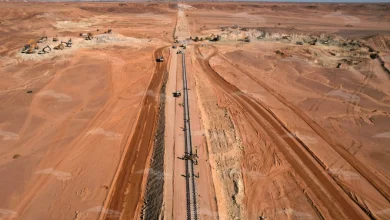Algiers – Several experts have emphasized that the recently announced African Credit Rating Agency will play a “decisive” role in the continent’s economic and financial landscape. They noted that this institution will adopt its own evaluation system for African economies, enabling the continent to break free from dominant private rating agencies often criticized for their “unobjectivity” and bias.
In interviews with the Algerian Press Service (APS), these experts highlighted the importance of this initiative within the framework of continental economic integration, citing its potential to “strengthen the shared financial market.” They believe the agency will help retain African capital within the continent, thereby supporting shared development and reducing dependency on Western financing traditionally dominated by three major credit rating agencies.
During his intervention at the opening of the 34th Summit of the African Peer Review Mechanism (APRM) in Addis Ababa on Friday, President Abdelmadjid Tebboune affirmed that this continental agency “represents a new cornerstone for Africa’s economic development and will be highly beneficial for its countries.” He added, “We must move away from unscientific, illogical, and uneconomic evaluations, and I believe it is essential that we evaluate ourselves before others do so for us.”
In this regard, financial expert Mr. Chaaban Essad underscored the “fundamental importance” of establishing this agency, both economically and geopolitically. He explained that the global agencies—Fitch, Standard & Poor’s, and Moody’s—frequently assign negative ratings to African countries, leading to higher borrowing costs in international markets. He further noted, “These high rates significantly impact the finances of African nations, with debt servicing amounting to billions of dollars annually.” Additionally, he pointed out that these agencies have faced international criticism, particularly for their role in the subprime mortgage crisis, which resulted from inadequate financial service assessments.
Regarding the expected role of this new continental body, Mr. Essad stated that by evaluating African economies and financial institutions, the agency will enable African countries to negotiate better loan terms. He recommended establishing branches in various countries to reduce reliance on foreign agencies and foster trust in the African financial market.
Enhancing Sovereignty and Economic Attractiveness
For his part, Professor Nizim Sini in economics explained that this African credit rating agency represents an important tool to “break away from the dominance of the three Western agencies,” whose country risk assessments are often described as “partial, directed, and biased.” He added that this new evaluation mechanism will take into account African specificities, as well as the efforts of countries in economic reforms, technological development, and digitalization.
He stressed that “this agency must operate under collective governance to ensure a fair rating system aligned with the needs of African economies,” highlighting that this initiative will enhance the continent’s financial sovereignty, improve debt management, and ensure greater independence in economic decision-making.
Former banking expert Mr. Aider Sassi also praised this initiative, stating that it will strengthen the “independence and sovereignty of the continent.” He added that by providing greater transparency and insight for African investors, the agency will contribute to improving the continent’s economic and financial attractiveness.
Mr. Sassi also emphasized the importance of “credibility and transparency” in the agency’s operations, recommending a central body to ensure “consistency and rigor” in its work. He concluded by affirming that “the African Credit Rating Agency will lay the groundwork for future coordination of economic and institutional evaluations across the continent, and ultimately, local branches will need to be established to effectively monitor national economies and their unique characteristics.”
Article written by Nor Eleslam for dzwatch.dz.




